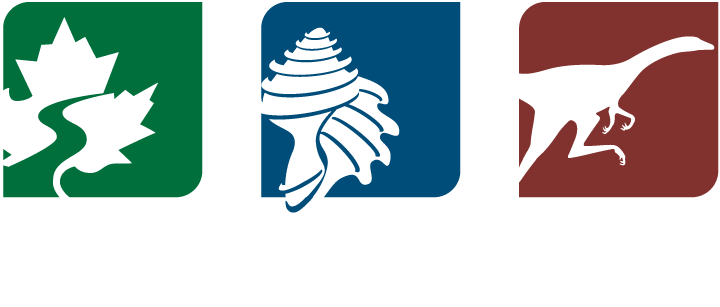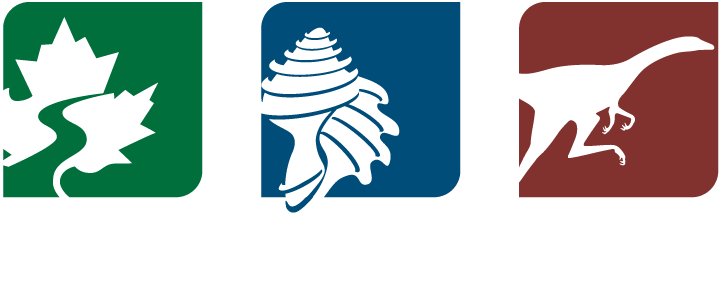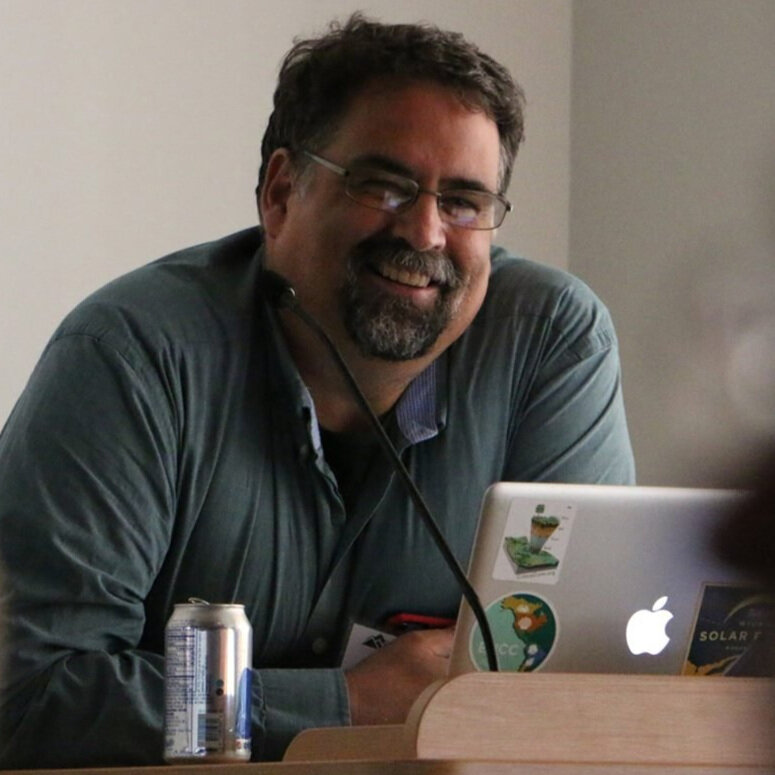Don Haas
Dr. Don Haas
Director of Teacher Programming
Concentration
Science Communication Focused on Climate and Energy, Place-based Earth Science Education, Teacher Professional Development, and Curriculum Materials Development.
Graduate Fields
Science Education and Teacher Education
Education
B.A. Physics with Secondary Teaching Certification, SUNY Geneseo, 1985.
M.S. Earth Science Education, SUNY Cortland, 1990.
Ph.D. Curriculum, Teaching and Educational Policy, Michigan State University, 2000.
Additional Links
Overview
Don’s work in public outreach, teacher education, teacher professional development and curriculum materials development marries deep understandings of how people learn with deep understandings of the Earth system. He is a past president of the National Association of Geoscience Teachers, and a nationally regarded expert in climate and energy education, place-based and technology-rich Earth and environmental science education. He has led educator professional development programming throughout the US. He also is co-author of the books, The Teacher-Friendly Guide to Climate Change and The Science Beneath the Surface: A Very Short Guide to the Marcellus Shale. He served on the Earth & Space Science Design Team for the National Research Council’s A Framework for K-12 Science Education: Practices, Crosscutting Concepts, and Core Ideas. Don has taught at Colgate, Cornell, and Michigan State Universities, the University at Buffalo, Kalamazoo College, and Tapestry and Norwich (New York) High Schools.
Research Focus
Dr. Haas’s research is currently focused upon determining the fundamental ideas that are most important for everyone to understand about the Earth system and how to help educators nurture understandings of those ideas. This is tightly connected to the topics of climate change and energy, and what approaches build (or fail to build) understandings that are relevant and useful for taking action. He’s grown especially interested in technology-rich place-based education — an approach that engages learners in the close study of their local environment and using these locally grounded understandings to better understand the global Earth system. With work addressing teaching and learning about hydrofracking, climate change and evolution, he has also developed expertise in the teaching of controversial issues.
Instruction Focus
Dr. Haas’s instruction currently focuses on educator professional development especially as related to systems thinking using climate, energy and controversial issues as foci. His research and teaching target the same goals and involve the same strategies — using place-based and inquiry-oriented approaches to teaching and learning to build deep understandings of Earth system science and especially the big ideas that define the discipline.
Honors, Awards, and Appointments
The Science Teachers Association of New York State (STANYS) Service Award, 2020
Friend of the Planet Award, The National Center for Science Education, 2019 (Award granted to PRI for our work in climate change education)
US Advisory Committee, International Ocean Discovery Program, Education Member, 2018 - present
Thomas B. Ervin Distinguished Service Award, National Association of Earth Science Teachers, 2018
Distinguished Service Award, 2015, The New York State Earth Science Teachers' Association
International Representative, PromoScience, Natural Sciences and Engineering Research Council of Canada, 2014 - 2017
Earth and Space Science Design Team for The Frameworks for K-12 Science Education, the National Research Council, 2009-2012.
Assistant Professor of Educational Studies, Colgate University, 2003-2007.
Visiting Assistant Professor of Education, Cornell University, 2001-2003.
Visiting Assistant Professor & Director of Teaching Internships, Kalamazoo College, 1999-2001.
Selected Media Mentions
“Some of the biggest problems facing society are climate change, energy, land use, food, and so forth. And all are deeply, deeply grounded in the Earth sciences,” Don A. Haas, the director of teacher programming at the Paleontological Research Institution, told me.
Pierre-Louis, K. (2022, May 4). Americans Are Missing a Key Stratum of Modern Knowledge. The Atlantic. https://www.theatlantic.com/science/archive/2022/05/earth-science-education-climate-change/629761/
“It is, in my view, essential to always remain true to the scientific evidence, but what the scientific evidence is showing us is frankly terrifying.”
Showstack, Randy. “Scientists Explore How Best to Communicate About Climate Change.” Eos, December 9, 2019. http://eos.org/articles/scientists-explore-how-best-to-communicate-about-climate-change.


